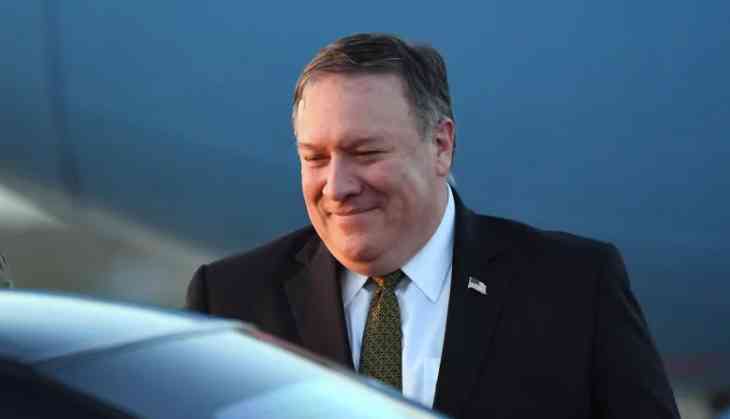
UN sanctions are being reimposed on Iran and the US is planning additional measures, including to punish the countries that do not agree with the sanctions, US Secretary of State Michael Pompeo said.
"... today, the United States welcomes the return of virtually all previously terminated UN sanctions on the Islamic Republic of Iran," Pompeo said in a Saturday statement, adding that the "sanctions are being re-imposed on Iran pursuant to the snapback process under UN Security Council resolution (UNSCR) 2231."
According to the statement, the US expects all UN member states to comply with their obligations to implement the sanctions, failure to do so will lead to consequences.
"In addition to the arms embargo, this includes restrictions such as the ban on Iran engaging in enrichment and reprocessing-related activities, the prohibition on ballistic missile testing and development by Iran, and sanctions on the transfer of nuclear- and missile-related technologies to Iran, among others. If UN Member States fail to fulfill their obligations to implement these sanctions, the United States is prepared to use our domestic authorities to impose consequences for those failures and ensure that Iran does not reap the benefits of UN-prohibited activity," Pompeo said.
He added that the US will continue its "maximum pressure campaign" against Iran until a comprehensive agreement is reached.
"In the coming days, the United States will announce a range of additional measures to strengthen implementation of UN sanctions and hold violators accountable," Pompeo said.
Iran's Permanent Representative to the United Nations, Majid Takht Ravanchi, expressed hope that members of the UN Security Council would ignore US attempts to take advantage of the UNSC mechanisms.
In a letter to UN Secretary-General Antonio Guterres, obtained by Sputnik on Sunday, Iran's permanent representative reiterated Tehran's stance regarding the sanctions, saying that Iran considers the US attempt to restore UN sanctions legally untenable, since Washington is no longer a party to the JCPOA (Joint Comprehensive Plan of Action), having withdrawn from the Iranian nuclear deal in 2018.
The majority of the UN Security Council members, including Russia, China, France, Germany and the United Kingdom, have said they would not support the US decision to re-impose sanctions against Iran since the United States unilaterally withdrew from the nuclear agreement in 2018.
The JCPOA, signed in 2015 by Iran, China, France, Germany, Russia, the United Kingdom, the United States and the European Union, stipulates the removal of international sanctions from Tehran in exchange for scaling down its nuclear program. The deal was then enshrined in UN Security Council Resolution 2231, which includes the provision on the five-year arms embargo.
Guterres said on Wednesday that it was up to the UN Security Council to interpret its resolution on the JCPOA nuclear deal, following the US threats to snapback all sanctions on Iran.
-ANI
Also Read: G20 Trade and Investment Working Group virtual meeting begins today


